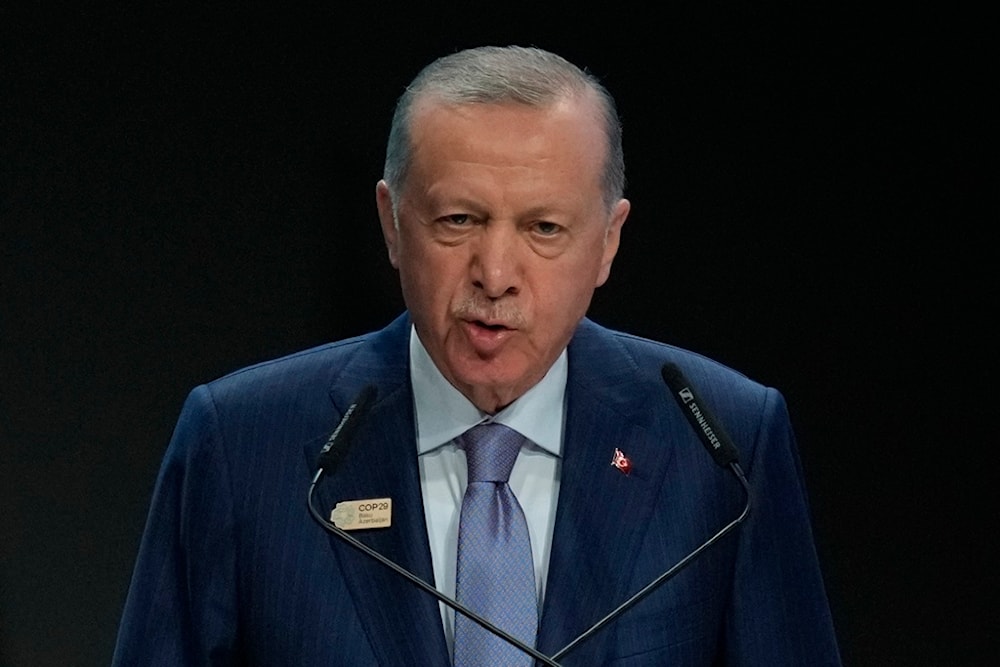Fate of nations cannot remain in hands of five UNSC members: Erdogan
Turkish President Recep Tayyip Erdogan says the ongoing humanitarian crises worldwide expose the fragility of the current global order.
-

Turkiye's President Recep Tayyip Erdogan speaks during a plenary session at the COP29 U.N. Climate Summit, Tuesday, November 12, 2024, in Baku, Azerbaijan. (AP)
Turkish President Recep Tayyip Erdogan called on Friday for a comprehensive reform of the United Nations, emphasizing that the future of nearly 200 countries cannot remain in the hands of the five permanent members of the Security Council.
“The UN needs to be completely reformed. The world cannot be left to the mercy of the five permanent (Security Council member) countries. The fate of 194 countries cannot be left in the hands or the lips of one of these five permanent members,” Erdogan stated during his address at the TRT World Forum in Istanbul.
Erdogan, a longstanding critic of the Security Council's structure—where any of the five permanent members can unilaterally veto major resolutions—reiterated his position that "the world is bigger than five."
Highlighting the need for UN reform, Erdogan cited progress already made, such as the establishment of the International Criminal Court (ICC) and the Turkiye-Spain Alliance of Civilizations initiative, designed to promote cooperation in the aftermath of the September 11, 2001 attacks in the United States.
He noted that competition between nations, spanning from trade to diplomacy, is becoming increasingly destructive and aggressive, placing humanity at a "turning point".
"Events are taking place that will affect not only the next 5-10 years but also the future of our grandchildren," Erdogan warned.
The Turkish President underlined that the ongoing humanitarian crises worldwide expose the fragility of the current global order, asserting that each crisis represents an opportunity to advance justice, peace, stability, and security.
Turning to the Russia-Ukraine war, which is approaching its fourth year, Erdogan remarked that the conflict has underscored the weaknesses of the "rules-based international system."
Global system fails the Gaza test
The Turkish leader criticized the global system’s failure in Gaza, stating that neither humanitarian principles nor the credibility of the United Nations withstood the test.
“Humanitarian disaster has been permitted under the pretext of Holocaust guilt, but this is a dead-end path,” he indicated, referring to how Western countries’ Holocaust guilt made them hesitant to criticize "Israel’s" actions in Gaza.
Erdogan expressed solidarity with the suffering in Gaza, Palestine, and Lebanon, declaring that “consent to oppression is oppression."
He reiterated Turkiye’s call for a sustainable ceasefire in Gaza, which Ankara has been advocating since the start of the Israeli war 13 months ago. He also affirmed Turkiye’s readiness to mediate for an enduring peace.
In a related context, Erdogan emphasized the significance of the International Criminal Court's arrest warrants for Israeli Prime Minister Benjamin Netanyahu and former Security Minister Yoav Gallant for war crimes in Gaza.
Elsewhere, he expressed optimism that the ceasefire between "Israel" and Lebanon, which took effect on Wednesday, will hold.

 3 Min Read
3 Min Read








